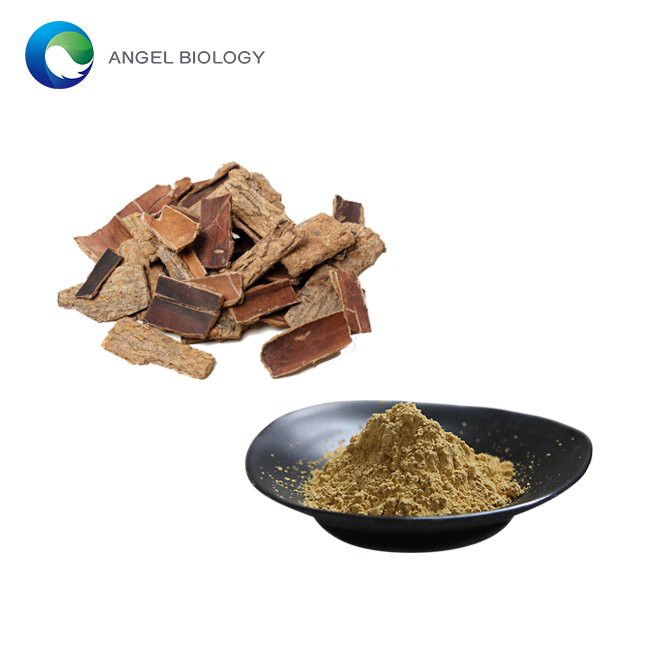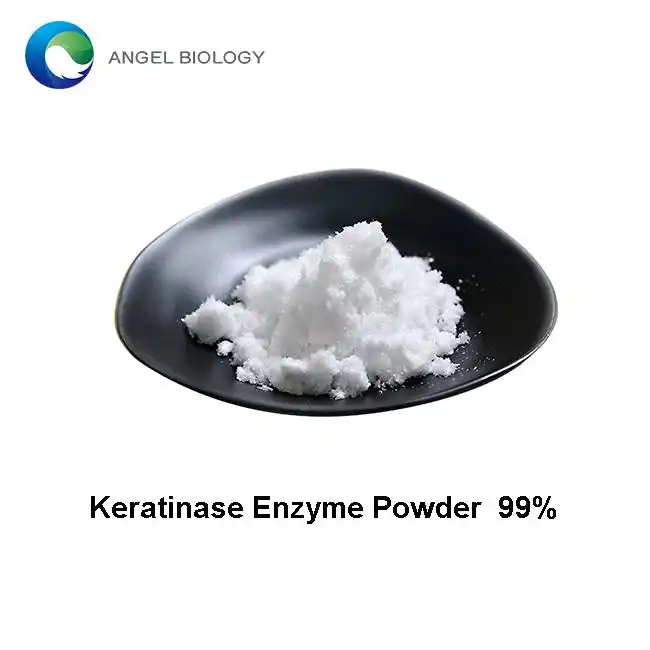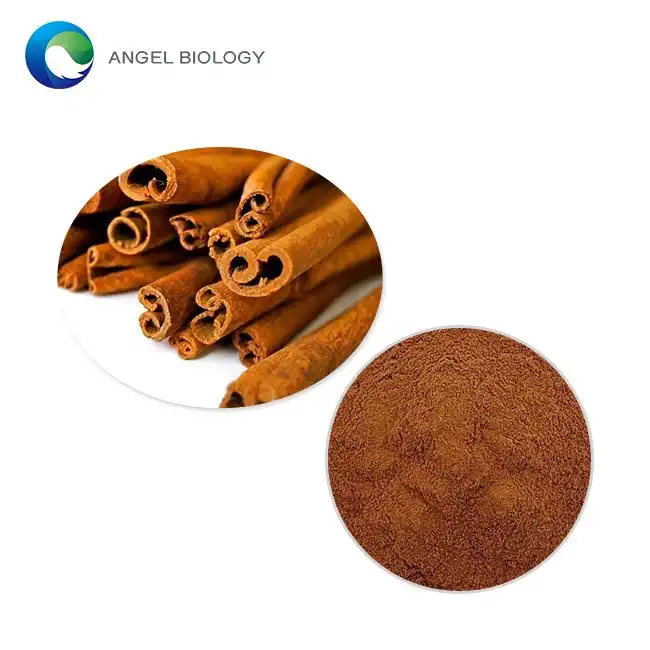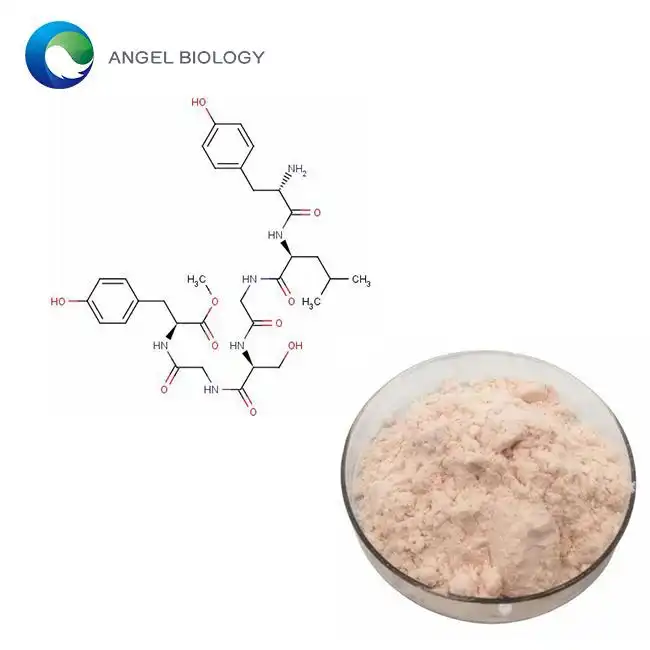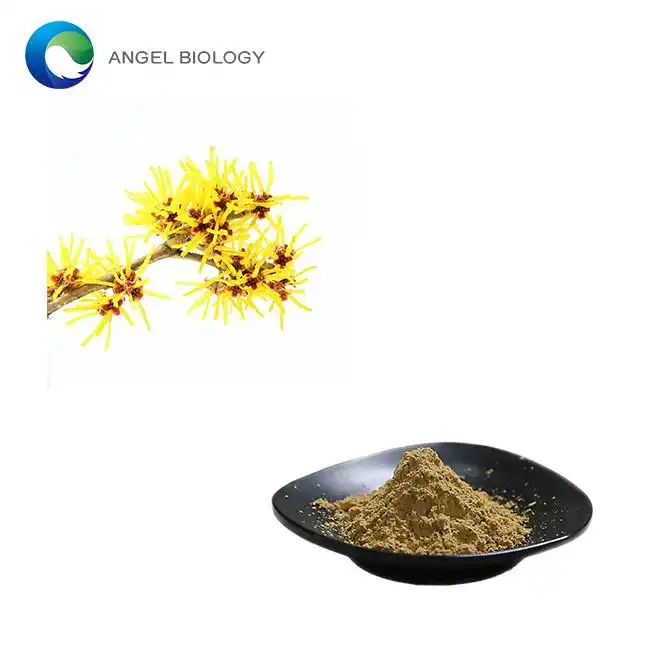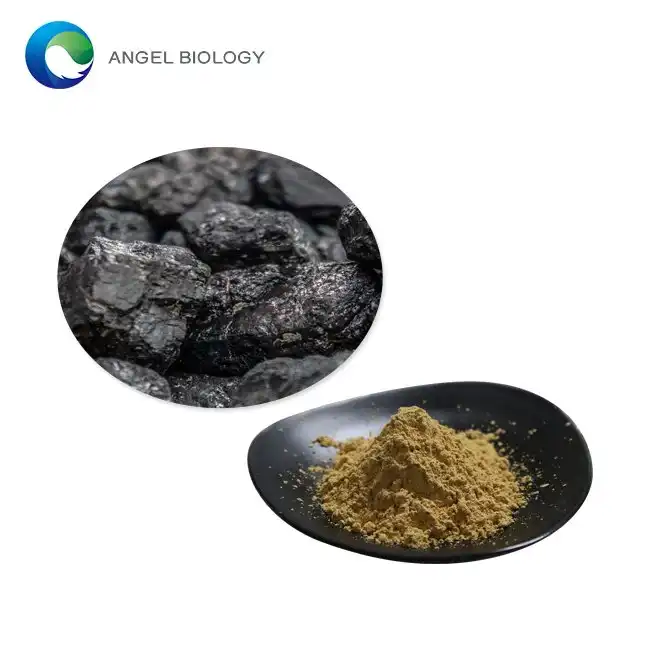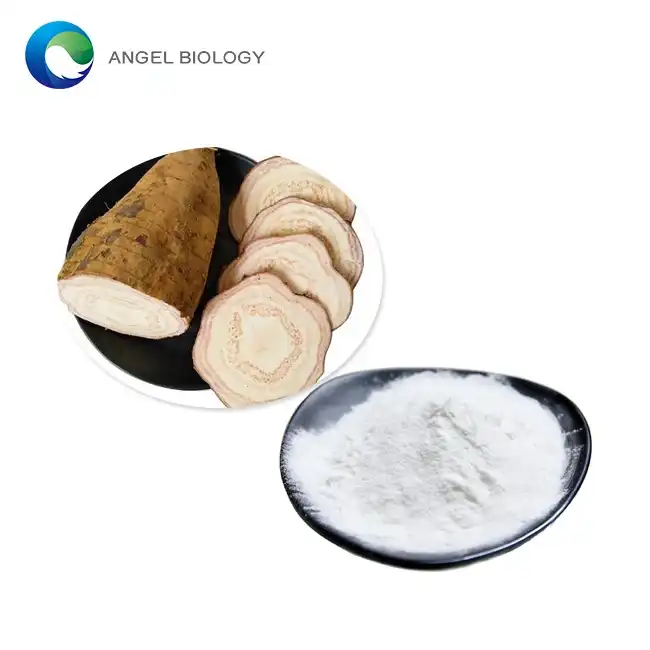What is Berberine Extract Powder?
Berberine Extract Powder is a potent bioactive compound extracted primarily from plants like Berberis vulgaris (barberry), Berberis aristata (tree turmeric), Hydrastis canadensis (goldenseal), and Coptis chinensis (Chinese goldthread). This yellow alkaloid has been used in traditional Chinese and Ayurvedic medicine for centuries. Recent scientific research has validated many of its traditional uses, particularly for managing blood glucose levels, supporting cardiovascular health, and promoting weight management. Due to its clinically-supported benefits, Berberine Extract Powder has gained popularity among health-conscious consumers seeking natural alternatives for metabolic and cardiovascular support.
What Are the Key Health Benefits of Berberine Extract Powder?
How Does Berberine Extract Powder Support Blood Sugar Management?
Berberine Extract Powder effectively supports healthy blood glucose levels by activating AMP-activated protein kinase (AMPK), often called the body's "metabolic master switch." When activated, AMPK improves insulin sensitivity and reduces glucose production in the liver. Clinical studies show that Berberine Extract Powder can decrease fasting blood glucose levels, reduce hemoglobin A1C, and improve insulin sensitivity. In some research, its effectiveness has been comparable to conventional approaches, though through different mechanisms. Berberine Extract Powder also positively influences gut microbiota, which plays a crucial role in glucose metabolism. This multi-faceted approach has made it increasingly popular for those seeking natural metabolic health support, though it should always be used under appropriate medical supervision.
How Can Berberine Extract Powder Improve Cardiovascular Health?
Berberine Extract Powder supports cardiovascular health through multiple pathways. One well-documented benefit is its ability to maintain healthy cholesterol levels by reducing total cholesterol, LDL cholesterol, and triglycerides while potentially increasing HDL cholesterol. This effect works by inhibiting an enzyme involved in cholesterol synthesis and increasing LDL receptor expression in the liver. Additionally, Berberine Extract Powder supports healthy blood pressure levels by promoting vasodilation and improving endothelial function. It also exhibits antioxidant properties that protect against oxidative damage to blood vessels and heart tissue. By supporting healthy blood glucose levels, Berberine Extract Powder indirectly benefits cardiovascular health, as elevated blood sugar is a known risk factor for cardiovascular issues.
Berberine Extract Powder indirectly benefits cardiovascular health, as elevated blood sugar is a known risk factor for cardiovascular issues.
What Role Does Berberine Extract Powder Play in Weight Management?
Berberine Extract Powder aids weight management by activating AMPK, which helps regulate metabolism and energy production. This activation may increase calorie expenditure, enhance fat burning, and reduce fat storage. Research suggests that Berberine Extract Powder can reduce body weight, BMI, and waist circumference, particularly targeting visceral adipose tissue—the dangerous fat around abdominal organs associated with metabolic disorders. Berberine Extract Powder also influences hormones that regulate hunger and satiety, potentially reducing caloric intake. Its ability to support healthy blood sugar levels and improve insulin sensitivity contributes significantly to weight management, as insulin resistance often accompanies weight gain. Additionally, Berberine Extract Powder may positively modulate gut microbiota, which plays an increasingly recognized role in weight regulation.
How Should Berberine Extract Powder Be Used for Maximum Effectiveness?
What Is the Recommended Dosage of Berberine Extract Powder?
Most clinical studies showing beneficial effects of Berberine Extract Powder have used total daily doses of 900-1500 mg, typically divided into multiple doses throughout the day. This division is important because Berberine Extract Powder has relatively low bioavailability and a short half-life. Taking 500 mg two to three times daily with meals appears to maximize absorption and maintain more consistent blood levels. Those new to Berberine Extract Powder should start with a lower dose of approximately 300 mg once or twice daily and gradually increase to minimize potential digestive discomfort. While the powdered extract offers flexible dosing, many prefer encapsulated forms for convenience. Quality products should be standardized to contain at least 97% berberine to ensure potency and consistency. Consulting with a healthcare provider before beginning Berberine Extract Powder is essential, particularly for individuals taking medications or with existing health conditions.
When Is the Best Time to Take Berberine Extract Powder?
Taking Berberine Extract Powder 15-30 minutes before meals provides optimal benefits, especially for blood glucose regulation. This timing allows the active compounds to be present during digestion and nutrient absorption, helping mitigate post-meal glucose spikes. For blood sugar support, taking it before carbohydrate-containing meals is most effective. Those primarily interested in lipid-lowering benefits might find that consistency in timing is more important than meal coordination. If digestive discomfort occurs, taking Berberine Extract Powder with or after meals rather than before can help reduce these effects. Given berberine's relatively short half-life of 4-8 hours, dividing the daily dose throughout the day helps maintain more consistent blood levels. Some individuals find that evening doses cause mild alertness, so morning and midday administration may be preferable for those sensitive to such effects.
How Can Berberine Extract Powder Be Combined with Other Supplements?
Berberine Extract Powder works synergistically with several supplements. For metabolic support, pairing it with alpha-lipoic acid enhances insulin sensitivity more effectively than either supplement alone. Combining Berberine Extract Powder with milk thistle (silymarin) may improve berberine's bioavailability while providing additional liver support. For cardiovascular benefits, combining it with omega-3 fatty acids creates a comprehensive approach to heart health, with berberine supporting healthy cholesterol and blood sugar levels while omega-3s provide anti-inflammatory and triglyceride-lowering effects. Coenzyme Q10 (CoQ10) also pairs well for cardiovascular support. For gut health, probiotics complement Berberine Extract Powder's effects on gut microbiota. Those seeking weight management support might consider combining it with green tea extract to support metabolic rate and fat oxidation. When combining supplements, introduce them gradually under professional guidance, as certain combinations may have additive effects on blood glucose or blood pressure.
What Should You Look for When Purchasing Berberine Extract Powder?
How Can You Identify High-Quality Berberine Extract Powder?
High-quality Berberine Extract Powder should be standardized to contain at least 97% berberine alkaloids for consistent potency. Extracts from Berberis aristata or Coptis chinensis are generally superior due to their higher natural berberine content. Third-party testing provides quality assurance for purity, potency, and absence of contaminants like heavy metals, pesticides, and microbial agents. Reputable manufacturers should make Certificates of Analysis available upon request. Ethanol or water extraction methods generally preserve more beneficial compounds than harsher solvent methods. Visually, high-quality Berberine Extract Powder typically exhibits a consistent, bright yellow color with a fine texture and distinctive bitter taste. Proper packaging in opaque, airtight containers protects the compound from degradation. Manufacturers with GMP certification and experience in botanical extracts more consistently produce premium products.
What Certifications Should Berberine Extract Powder Have?
When selecting Berberine Extract Powder, look for GMP certification, which ensures adherence to strict quality control protocols throughout production. Organic certification indicates that the berberine-containing plants were cultivated without synthetic pesticides, fertilizers, or genetic modification. Non-GMO verification provides additional assurance regarding the natural origin of the source plants. Kosher or Halal certifications verify compliance with specific religious dietary laws. Third-party testing certifications from organizations such as USP, NSF International, or Informed-Choice demonstrate independent verification for purity and potency. ISO certifications (particularly ISO 9001 for quality management and ISO 22000 for food safety) indicate adherence to internationally recognized standards. Fair Trade certification ensures ethical sourcing practices and fair compensation to farmers.
compensation to farmers.
How Does Extraction Method Affect Berberine Extract Powder Quality?
The extraction method significantly influences Berberine Extract Powder quality and potency. Traditional water-based extraction preserves water-soluble compounds but may not capture all beneficial alkaloids. Ethanol extraction offers improved efficiency, extracting a broader spectrum of berberine alkaloids while maintaining good stability. Supercritical CO2 extraction produces exceptionally pure Berberine Extract Powder with minimal processing residue. In contrast, harsh chemical solvents like hexane or acetone may leave problematic residues if not properly removed. Cold-processing techniques are preferable for preserving heat-sensitive compounds in berberine. Spray-drying tends to maintain higher potency than drum-drying methods. Proper solvent removal is essential regardless of method. The ideal Berberine Extract Powder comes from manufacturers using optimized extraction protocols that balance maximum alkaloid yield with minimal processing impact.
Conclusion
Berberine Extract Powder is a remarkable natural compound with scientifically-validated benefits for metabolic health, cardiovascular support, and weight management. When selecting and using this supplement, attention to quality, proper dosing, and potential interactions is essential. As research continues to unveil berberine's mechanisms and applications, it offers a valuable option for those seeking evidence-based natural support for their wellness goals.
Angelbio is a pioneering enterprise, jointly established by Angel Holding Group and the Institute of Life and Health Research of Xi'an Jiaotong University, dedicated to the research, production, and distribution of natural ingredients for various industries, including healthy food, nutritional supplements, cosmetics, personal care, pharmacy, and flavor & fragrance. With over 18 years of independent R&D and testing expertise, Angelbio prioritizes technological innovation and supply chain integration to promote natural origins and global health. Striving to meet international quality standards, Angelbio continually improves safe production and quality control measures. Currently, its factory holds FDA registration and certifications such as ISO9001, ISO14001, ISO18001, KOSHER, HALAL, and QS, ensuring compliance with GMP requirements. Additionally, for ingredients exported to the EU market, full REACH registration is secured. Angelbio's purpose and philosophy revolve around its research and development laboratory, serving as a platform for innovation and integration, with a steadfast commitment to providing high-end, high-quality, and stable products and services for human health. As a leading Berberine Extract Powder manufacturer in China, Angelbio's products are trusted and praised by customers. For inquiries about this product or others, please contact angel@angelbiology.com for dedicated service. These represent Angelbio's corporate advantages.
References
1. Zhang Y, Li X, Zou D, et al. Treatment of type 2 diabetes and dyslipidemia with the natural plant alkaloid berberine. Journal of Clinical Endocrinology & Metabolism. 2008;93(7):2559-2565.
2. Yin J, Xing H, Ye J. Efficacy of berberine in patients with type 2 diabetes mellitus. Metabolism. 2008;57(5):712-717.
3. Dong H, Wang N, Zhao L, Lu F. Berberine in the treatment of type 2 diabetes mellitus: a systemic review and meta-analysis. Evidence-Based Complementary and Alternative Medicine. 2012;2012:591654.
4. Wei W, Zhao H, Wang A, et al. A clinical study on the short-term effect of berberine in comparison to metformin on the metabolic characteristics of women with polycystic ovary syndrome. European Journal of Endocrinology. 2012;166(1):99-105.
5. Cicero AF, Baggioni A. Berberine and its role in chronic disease. Advances in Experimental Medicine and Biology. 2016;928:27-45.
6. Lan J, Zhao Y, Dong F, et al. Meta-analysis of the effect and safety of berberine in the treatment of type 2 diabetes mellitus, hyperlipemia and hypertension. Journal of Ethnopharmacology. 2015;161:69-81.



